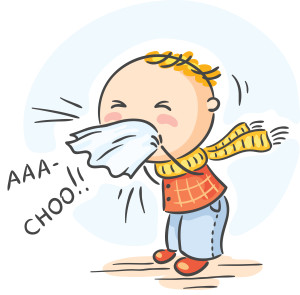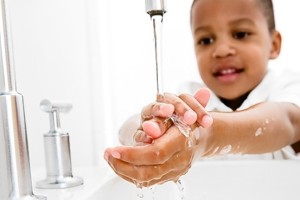RSV….Respiratory Syncytial (sin-SISH-uhl) virus. RSV is a respiratory virus that attacks the lungs and breathing passages. Healthy individuals usually have mild cold like symptoms that last for a week or two. But RSV can be very serious especially for infants and medically fragile children. RSV is the most common cause of bronchiolitis ( inflammation of the small airways in the lungs) and pneumonia in children younger than 1 year of age in the united States. If you have an infant under one, especially during cold and flu season, keep them away from large groups of people (malls, grocery stores, church nursery’s). If friends and relatives are coming to visit, make sure they are well, no fevers, coughing, runny nose or scratchy throats, encourage them to wash their hands before holding your baby.
Symptoms of RSV infection are similar to other respiratory infections. Illness usually begins 4 to 6 days after exposure (range: 2 to 8 days) with a runny nose and decrease in appetite. Coughing, sneezing, and fever typically develop 1 to 3 days later. Wheezing may also occur. In very young infants, irritability, decreased activity, and breathing difficulties may be the only symptoms of infection. Most otherwise healthy infants infected with RSV do not need to be hospitalized. In most cases, even among those who need to be hospitalized, hospitalization usually only lasts a few days, and full recovery from illness occurs in about 1 to 2 weeks. There is no specific treatment for RSV infection. Information from the cdc.gov
WAYS TO PREVENT RSV
- Cover their coughs and sneezes
- Wash their hands frequently and correctly (with soap and water for 20 seconds)
- Avoid sharing their cups and eating utensils with others
- Refrain from kissing others
Pictures from Bing images.


